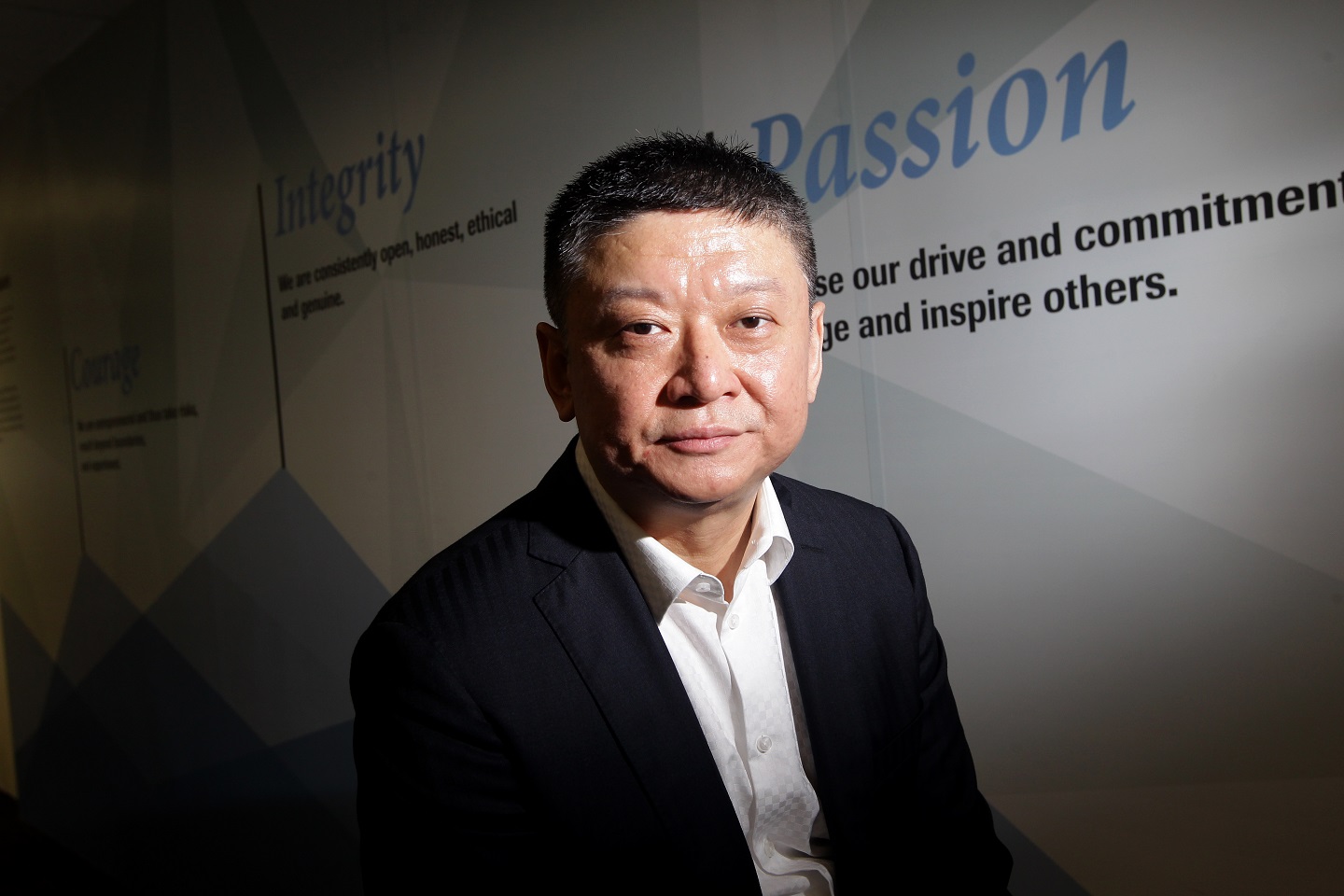
Roche Malaysia general manager Lance Duan (Photo: Haris Hassan/The Edge)
Over 20 years ago, the Lung Cancer Alliance launched Lung Cancer Awareness Day (LCAD) in the US. The aim was simple: to increase the recognition of the symptoms of lung cancer, which commonly include a persistent cough, fatigue and loss of appetite. Due to the ambiguity of these symptoms, they may initially be disregarded and this often means delayed diagnosis and access to treatment. Increasing awareness of the symptoms and an early diagnosis are key to tackling lung cancer.
As a result of the expansion and galvanisation of the lung cancer community across the world, awareness activities increased exponentially and LCAD evolved from a US-centred awareness day to a global campaign now known as Lung Cancer Awareness Month (LCAM), which takes place each year throughout November. During this time, more than two decades on, the understanding of lung cancer has advanced significantly, resulting in major progress in both diagnosis and treatment.
This has yet to translate globally, though. According to research from Swiss healthcare multinational Roche, in Malaysia, over 75% of lung cancers are diagnosed at either Stage 3 or 4 and often patients can only be offered palliative care. It is the second most common cause of cancer deaths in the country with 4,088 per year.
“Cancer is a common problem in most countries and in Malaysia, lung cancer is the second most common,” says Roche Malaysia general manager Lance Duan. “Right now, most lung cancers are diagnosed at the very late stages, which vastly reduces the chances of survival. We are trying to change that. We work with various partners to improve awareness, which is very important. Within the healthcare community, we are also trying to raise awareness so they are more sensitive to the symptoms.”
Founded in Basel in 1896, Roche has been operating in Malaysia since the 1950s. “I believe our mission is to introduce innovative solutions to the community and for that, we need to continually launch new products. Malaysia has a very good healthcare system but we notice gaps in terms of patient access. That means a lot of patients do not have access to some of the products we make, and we want to close that gap and improve that,” he says.

One of the most notable programmes the company runs is the Roche Patient Assistance Program (RPAP), which helps eligible patients to access the Roche medicines they are prescribed. A dedicated team is assigned to provide value-added support and services to eligible patients. Duan is very proud of the programme. “Since 2007, we have had over 5,000 patients in the programme — mostly with cancer — and it keeps growing every year. My goal is to register a 20% increase, year on year. Any way we can increase a patient’s access to care, well, we are happy to do so.”
This includes getting the right products out to the market at the right time. In July, Roche launched a new immunotherapy drug for patients with metastatic non-small cell lung cancer, which is the most commonly diagnosed form, accounting for 85% of all cases. This medication will be one of many that patients can access via Roche’s RPAP system, which Duan is hoping to grow. “When I arrived in Malaysia, I was not really given any mandate. We have a robust foundation and have seen steady growth here. When I came here and spoke to the team, it was not about jumping on any KPIs because this is not my or Roche’s purpose. For us, it is about looking at patient numbers, looking at new innovative products — that is our plan for the next three to five years.”
We work with various partners to improve awareness, which is very important. Within the healthcare community, we are also trying to raise awareness so they are more sensitive to the symptoms
Also part of the plan is to maximise stakeholder collaboration, which puts vital medical information into the hands of individuals within the community, with the end goal of ensuring that, as a patient with medical needs, you should never have to go without life-saving treatment. “What I think is important is to engage as many partners and stakeholders as possible to create effective solutions.
“We conduct workshops with the community to enhance the levels of education and knowledge, and we work with NGOs beyond just providing monetary support, because the idea is to elevate the voices of our patients.”
Hailing from western China, Duan joined the pharmaceutical industry because of a childhood experience watching nurses and doctors at work in a hospital. He wanted to help people and being in this line of work was one way for him to do this. Duan, who holds qualifications in both business administration and clinical medicine, started his career with Roche in the marketing division. After postings across China, he applied for a vacancy to run the Malaysia office — his first overseas assignment. Duan reports to the head of Asia-Pacific and is passionate about making a difference in the country and the region he now calls home.
“We have 15 countries within Asia-Pacific and, relatively speaking, Malaysia is a small market in terms of population and the size of the business. But the advantage is that we have a strong presence in this country and very steady growth,” he says. “This I think is a good reflection of the macroeconomy and the healthcare industry in general. Where I can see us really making a difference is in patients’ access to care, which is why it is so important to me.”
This article first appeared on Nov 12, 2018 in The Edge Malaysia.


